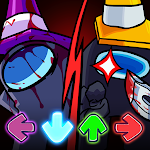The debate surrounding turn-based versus action-oriented gameplay in RPGs has been reignited with the release of Clair Obscur: Expedition 33. This game, which launched last week, has been widely praised, including by IGN, as an exceptional RPG that proudly showcases its inspirations. Featuring a turn-based system with Pictos to equip, zoned-out "dungeons" to explore, and an overworld map, Clair Obscur: Expedition 33 harkens back to the classic RPG format while adding a modern twist.
In an interview with RPGsite, producer Francois Meurisse revealed that Clair Obscur was designed as a turn-based game from the outset, drawing inspiration from iconic titles like Final Fantasy VIII, IX, and X. The game also incorporates elements from Sekiro: Shadows Die Twice and Mario & Luigi, blending quick-time events for attacks and parrying/dodging mechanics for defense. This hybrid approach results in a gameplay experience that feels traditional during strategy and command phases, yet action-packed during combat and defense sequences.
The success of Clair Obscur has sparked discussions on social media, with many citing it as evidence against the shift away from turn-based systems in RPGs, particularly in the Final Fantasy series. Naoki Yoshida, during the media tour for Final Fantasy XVI, discussed the move towards action-based mechanics in RPGs, attributing it to changing player preferences, especially among younger audiences. This shift is evident in recent Final Fantasy titles like XV, XVI, and the VII remake series, which have embraced more action-driven gameplay.
However, the narrative is more nuanced than a simple preference for one system over another. Square Enix has not abandoned turn-based games entirely, as seen with the success of Octopath Traveler 2 and the upcoming releases like SaGa Emerald Beyond and the Bravely Default remaster for Switch 2. While Final Fantasy has moved towards action-oriented gameplay, it hasn't forsaken its roots entirely.
The question of whether Final Fantasy should adopt Clair Obscur's approach is met with a firm "no" by many. Final Fantasy's unique aesthetic and iconography cannot be easily replicated by simply swapping one system for another. Clair Obscur, while drawing from similar inspirations, stands out with its innovative combat system, compelling soundtrack, and thoughtful world-building, distinguishing itself from mere imitation.
Historically, debates over the direction of RPGs, including comparisons to Lost Odyssey and discussions on whether Final Fantasy VII or VI is superior, have been a staple of gaming communities. These discussions often overlook sales considerations, which Yoshida mentioned as a factor in Final Fantasy XVI's development. Despite this, he did not rule out the possibility of returning to a command system in future Final Fantasy games.
Clair Obscur: Expedition 33 has achieved remarkable success, selling 1 million copies in just three days, marking a significant achievement for Sandfall Interactive and Kepler. This success, alongside other turn-based hits like Baldur's Gate 3 and Metaphor: ReFantazio, challenges the notion that turn-based games cannot thrive in today's market.
While Clair Obscur's success is a triumph for its creators, it may not signal a necessary shift for Final Fantasy. Square Enix's recent entries, such as Final Fantasy XVI and FF7 Rebirth, faced challenges meeting profit expectations, influenced by broader shifts in the gaming industry and the high costs of developing major franchise entries.
Ultimately, the key takeaway from Clair Obscur's success is the importance of authenticity in game development. Projects that authentically reflect their creators' vision and passion are more likely to resonate with players. As Larian CEO Swen Vincke emphasized, creating a game that the team is excited about can lead to significant success, as demonstrated by Baldur's Gate 3. This approach suggests a promising path forward for the RPG genre, one that prioritizes creativity and innovation over rehashing old debates.
















